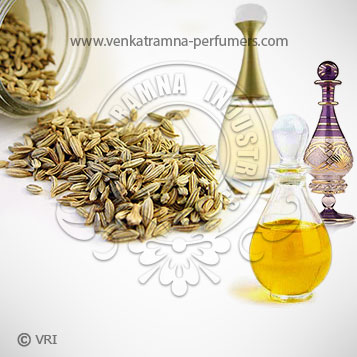
| Botanical Name | Foeniculum vulgare dulce |
| Common Name | Fenkel and Roman fennel. |
| Country of Origin | Spain |
| Solubility | Soluble in alcohol and oils. Insoluble in water |
| Specific Gravity | 0.95300 - 0.97300 @ 25.00 °C. |
| Optical Rotation | (+21.00) - (+24.00) |
| Refrective Index | 1.51000 - 1.56200 @ 20.00 °C |
| PlantPart | Seed |
| Bland With | It blends well with geranium, lavender, rose and sandalwood. |
| CAS No | 8006-84-6 |
| Flash Point | 145.00 °F |
| Extraction Method | Supercritical CO2 Extraction |
The fennel oil is extracted from crushed seeds by CO2 extraction method and yield 2 - 4 %. It is extracted from Foeniculum vulgare var. dulce that is a sweet fennel of the Umbelliferae (Apiaceae) family.
known as Fenkle in the Middle Ages, its name is from the Latin foenum meaning hay. The ancients believed it gave one longevity, courage and strength, and warded off evil spirits. Not only did they use it to strengthen the eyesight, but also for snakebite, colic, and fleas
Color : Clear to Pale Yellow with a spicy, sweet, woody scent,
Aroma : Spicy, woodsy scent.
It consists of a-pinene, myrcene, fenchone, trans-anethole, methyl chavicol, limonene, 1,8-cineole and anisic aldehyde.
This oil is a great remedy for digestive problems such as flatulence, constipation, colic, nausea, vomiting, anorexia, dyspepsia and hiccups. It is also used for skin care and has a cleansing and toning effect on the skin, useful in bruises, sorting out overly oily skin and helps fight wrinkles.